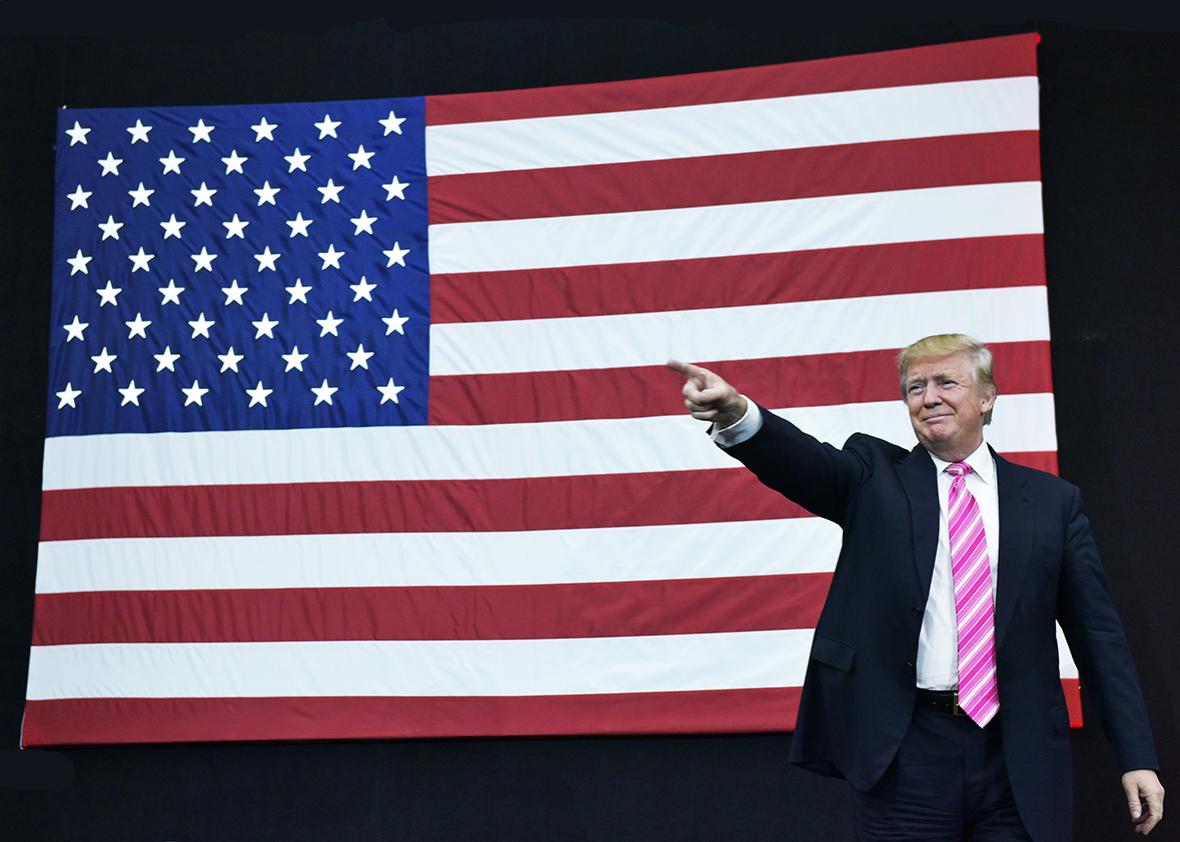Back in July, the New York Times Magazine reported that Donald Trump Jr. had approached an adviser to Republican presidential candidate John Kasich with a highly unusual proposition. Trump Jr., according to the Times, had asked if the Ohio governor might be open to serving as a kind of super vice president, taking charge of foreign and domestic policy and leaving Trump himself to be America’s cheerleader in chief. It is hard to know if there is any truth to Kasich’s adviser’s account of how the offer went down, or even whether the offer was extended in the first place. For what it’s worth, Trump Jr. disputed this version of events after it was first published.
Nevertheless, the Kasich anecdote is worth revisiting because it gets at an important truth about the American presidency. As absurd as it might seem for Donald Trump to leave the details of governing to others, it would actually be his best bet for a successful presidency. In 1960, political scientist Richard Neustadt famously argued that “presidential power is the power to persuade.” To make deep and durable changes to the way American society does business, President Trump needs to win over Congress. How, you ask? By tweeting angrily at Republican leaders on Capitol Hill. Call it “jeerleading.”
In the modern era, voters often assume that presidents have authority they don’t possess. Under Article I of the Constitution, the federal government’s power to promote the general welfare is vested in Congress. Over the years, Congress has granted various powers to the executive branch, to the dismay of constitutional conservatives. Yet it’s exceptionally rare for these powers to get handed over to the president personally. Rather, they are usually assigned to specific executive agencies, which Congress has constrained in a number of ways. There are some areas where the president does have broad unilateral authority. Foreign policy is by far the most important. Immigration policy is another, and a Trump White House is all but certain to issue controversial executive orders on that front. Even in these domains, Congress can choose to impose tighter constraints on the executive branch through budgetary line items and stipulations in law. The president can threaten to veto legislation, which in turn could get Congress to pay close attention to his priorities. But the veto power is a blunt instrument, and a presidential veto can be overridden with a two-thirds vote of each house of Congress.
Beyond a veto threat, a president can try to rally the public behind specific policy changes, and then threaten to campaign against members of Congress who get in his way. Every president in recent memory has tried to use the bully pulpit against a “do-nothing Congress,” including President Obama, who campaigned aggressively against congressional Republicans for opposing his agenda. But pressuring Congress is harder than it looks, as Obama discovered time and again. Lawmakers can respond to a mobilized public by dragging their feet on a given issue, and waiting for voters to tire of it and lose focus. They can pass legislation championed by a president and riddle it with loopholes that undermine its stated purpose. Or they can focus on catering to their base, even at the risk of alienating swing voters. Chances are that by the time the next election rolls around, focusing on the base will pay off. That’s roughly what happened when House Republicans threatened to force the federal government to default on its debt in 2013. Many voters were furious at the prospect of breaching the debt limit but not so furious that they didn’t give House Republicans another majority in 2014.
Is Donald Trump doomed to the same fate? Not necessarily. President Obama found it all but impossible to bend Republicans to his will because he was unpopular among GOP base voters. Though Trump is less popular than Obama with the public at large, he is far more popular with the Republican base. If Trump were to denounce House Speaker Paul Ryan and Senate Majority Leader Mitch McConnell, and demand that they pursue an agenda more to his liking, he’d have a much better shot than Obama did at mobilizing voters that Ryan and McConnell need to maintain their majorities.
What kind of agenda should Trump compel Republicans in Congress to pursue? In December, the Democratic polling firm Democracy Corps released a memo indicating that Trump’s unusual campaign alienated roughly as many traditional Republicans as it attracted working-class independents, who are deeply skeptical about the mainstream GOP. The shrewd move for Trump would be to push broad themes that excite Trump-friendly independents without alienating Trump-skeptical Republicans. Promising to defend Medicare and Social Security is a good start, and so is demanding that congressional Republicans replace Obamacare with a plan that doesn’t kick millions of people off the health insurance rolls.
Wouldn’t this drive Ryan and McConnell crazy, given that they’ve devoted years to painstakingly crafty their agenda? Of course it would. But that’s a plus as far as Trump is concerned. By bashing recalcitrant Republicans, he will make himself appear more independent and more moderate. And all without doing the hard work of coming up with legislative solutions of his own, which he could claim, reasonably, is not really his job to begin with.
What could go wrong? Trump could decide to call foreign leaders haters and losers, in which case all bets are off. Let’s hope he sticks to jeerleading Republicans.
